Historical Bahia
Deeply rooted in the annals of Brazilian history, Historical Bahia unveils a mesmerizing tale of cultural fusion and resilience. Its streets whisper tales of conquests and clashes, while its architecture stands as a testament to a bygone era.
But what secrets lie beneath the surface of this captivating region? Explore the layers of history and heritage that have shaped Bahia into the vibrant tapestry it is today, and uncover the hidden gems that await those curious enough to venture further into its storied past.
Key Points
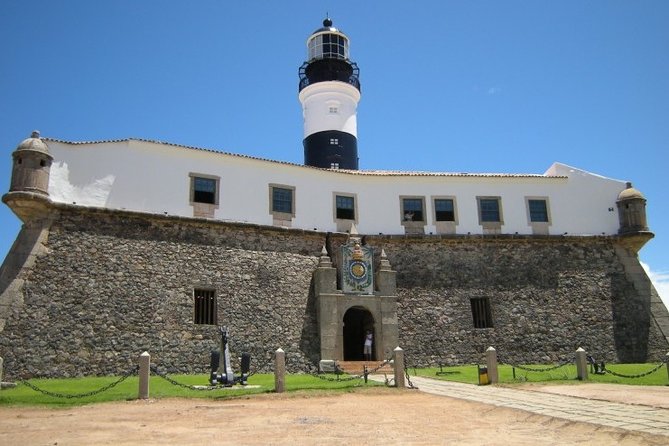
- Bahia’s vibrant streets and architecture reflect a rich colonial history.
- African heritage deeply influences Bahia’s cultural identity.
- Salvador’s architectural splendor highlights diverse influences.
- Bahia played a significant role in Brazil’s path to independence.
Bahia’s Rich Colonial History
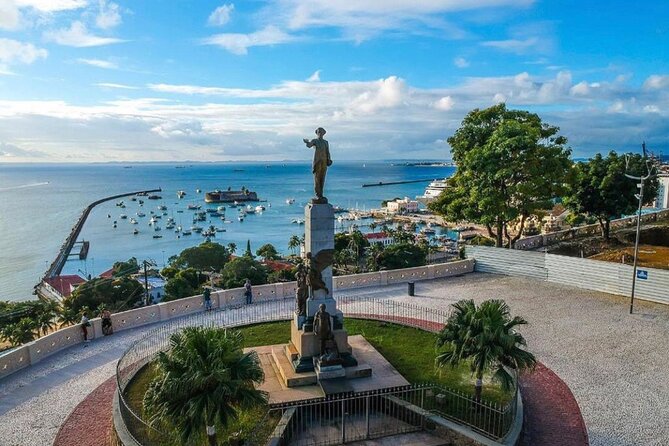
Bahia’s rich colonial history unfolds through its vibrant streets, echoing tales of a bygone era filled with cultural richness and historical significance. The influence of Afro Brazilian culture is deeply embedded in the colonial heritage of Bahia, shaping its unique identity.
From the colorful architecture of Pelourinho to the rhythmic beats of capoeira echoing through the cobblestone streets, Afro Brazilian culture permeates every aspect of Bahia’s history. The fusion of African traditions with Portuguese colonialism created a vibrant tapestry of art, music, and cuisine that continues to thrive in Bahia today.
Visitors can enjoy this cultural melting pot, experiencing firsthand the legacy of Afro Brazilian heritage that has left an indelible mark on Bahia’s past and present.
Influence of African Culture
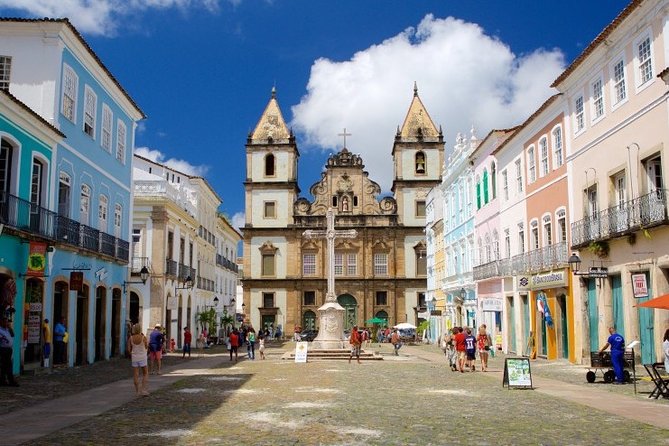
What enduring cultural influences can be traced back to the African heritage in Bahia’s rich history?
The African diaspora has significantly shaped Bahia’s cultural heritage, leaving a profound impact on various aspects of life in the region.
From music and dance to religion and culinary traditions, the vibrant and diverse African culture is deeply woven into the fabric of Bahian society.
The rhythms of samba and capoeira, the vibrant colors of the Carnival celebrations, and the flavors of traditional dishes like acarajé all reflect the influence of African roots.
On top of that, spiritual practices such as Candomblé and Umbanda highlight the fusion of African traditions with indigenous and European beliefs, showcasing the unique syncretism that characterizes Bahian culture.
The legacy of the African heritage continues to thrive in Bahia, enriching the region’s identity and contributing to its cultural tapestry.
Architectural Marvels of Salvador
Nestled along the vibrant streets of Salvador are architectural marvels that showcase a rich tapestry of history and culture. The city’s buildings, ranging from colonial to neoclassical styles, stand as testaments to architectural preservation and cultural fusion.
The Pelourinho district, a UNESCO World Heritage site, boasts colorful facades and intricate details that transport visitors back in time. The Baroque São Francisco Church dazzles with its ornate gold leaf decorations and exquisite craftsmanship.
As Salvador embraces modernity, efforts to maintain the integrity of these structures highlight the importance of preserving the past while looking towards the future. Exploring these architectural gems offers a glimpse into the diverse influences that have shaped Salvador into the vibrant city it’s today.
Bahia’s Role in Brazilian Independence
During the tumultuous era of Brazilian independence, Bahia played a pivotal role in shaping the nation’s future through its strategic alliances and revolutionary fervor.
-
Bahia’s role in politics was marked by significant leadership figures who led movements advocating for independence from Portuguese colonial rule.
-
The province’s economic development was crucial in supporting the independence movement, as its thriving trade and agricultural sectors provided resources for the cause.
-
Bahia served as a hub for revolutionary thinkers and activists, fostering a climate of dissent against colonial oppression.
-
The province’s strategic location and strong maritime connections played a crucial role in coordinating efforts with other regions towards achieving independence.
Bahia’s contributions to Brazilian independence underscore its historical significance in the country’s journey towards self-governance.
Cultural Traditions and Festivals
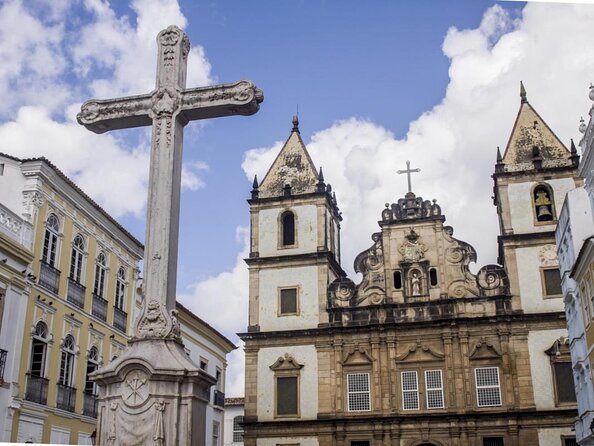
Bahia’s rich history of shaping Brazil’s path to independence intertwines seamlessly with its vibrant cultural traditions and colorful festivals, showcasing a tapestry of heritage and celebration. Festive music fills the streets during events like the Carnival of Salvador, where Afro-Brazilian rhythms and dances take center stage. Culinary delights such as acarajé, a deep-fried bean and shrimp fritter, tantalize taste buds at local markets and festivities.
| Cultural Traditions and Festivals | ||
|---|---|---|
| Festive Music | Culinary Delights | |
| – Carnival of Salvador | – Acarajé | |
| – Afro-Brazilian rhythms | – Deep-fried bean and shrimp fritter |
Preservation Efforts and UNESCO Recognition
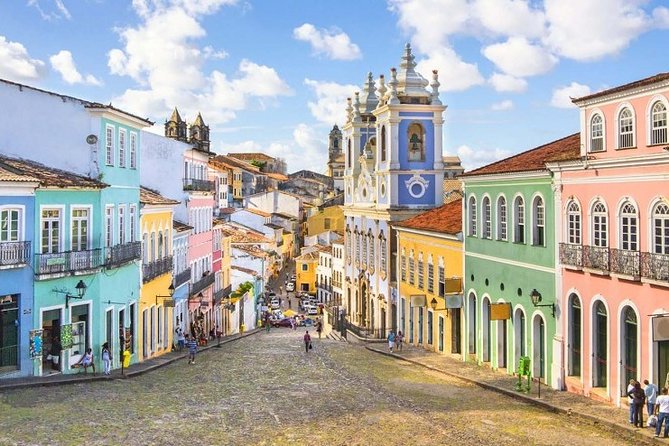
Conservation initiatives and UNESCO significance play crucial roles in safeguarding Bahia’s rich history. Here are key points highlighting the preservation efforts:
-
Historical Buildings: Restoration projects aim to maintain the architectural integrity of historic structures.
-
Cultural Festivals: Promoting traditional festivals helps preserve Bahia’s unique cultural expressions.
-
Educational Programs: Initiatives to educate locals and visitors about the historical significance of Bahia.
-
UNESCO Nomination: Bahia’s nomination for UNESCO World Heritage status underscores its exceptional cultural value.
Through these efforts, Bahia strives to protect its heritage for future generations and gain international recognition for its historical importance.
Common questions
How Can I Book a Guided Tour to Explore Bahia’s Historical Sites?
For those seeking to explore Bahia’s historical sites, booking a guided tour is simple. Tour availability and pricing can vary, but local guides often provide insightful recommendations. Ensure to book in advance for a seamless experience.
Are There Any Specific Dress Codes or Etiquettes to Keep in Mind When Visiting Historical Sites in Bahia?
When visiting historical sites in Bahia, travelers should respect dress codes and etiquettes to honor the architectural details and cultural significance. Modest attire, comfortable shoes, and a respectful demeanor are typically advisable for a meaningful experience.
What Are Some Lesser-Known Historical Facts or Stories About Bahia That Visitors Might Find Interesting?
Visitors to Bahia can uncover untold stories and explore hidden treasures beyond the well-known historical sites. Intriguing anecdotes await those curious enough to explore the lesser-known aspects of Bahia’s rich history.
Are There Any Hidden Gems or Off-The-Beaten-Path Historical Sites in Bahia Worth Exploring?
Exploring ruins and architectural wonders in Bahia reveals hidden gems off the beaten path. Visitors can uncover lesser-known historical sites full of intrigue and beauty. These spots offer unique insights into Bahia’s rich heritage.
How Can I Support Local Preservation Efforts and Initiatives to Protect Bahia’s Historical Heritage?
To support local preservation efforts in Bahia, one can engage in fundraising campaigns, community involvement, preservation workshops, and educational programs. These initiatives play a vital role in safeguarding the historical heritage and promoting sustainable tourism practices.
Last Words
As visitors bid farewell to Historical Bahia, they leave with a deep appreciation for its rich colonial history, vibrant African culture, stunning architectural marvels, and pivotal role in Brazilian independence.
The cultural traditions and festivals that continue to thrive in this enchanting region showcase the beauty of its diverse heritage.
Through preservation efforts and UNESCO recognition, Historical Bahia stands as a testament to the enduring magic and allure of Brazil’s past, inviting all to explore its captivating story.